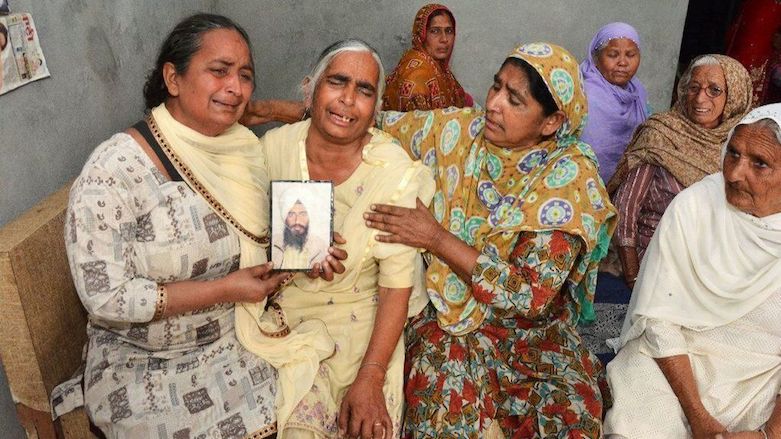India confirms 39 citizens kidnapped by IS in Iraq found dead

ERBIL, Kurdistan Region (Kurdistan 24) – India on Tuesday confirmed that the bodies of 39 of its citizens who were kidnapped by the Islamic State (IS) in northern Iraq in 2014 had been discovered.
The announcement by India’s Foreign Minister Sushma Swaraj ended a four-year wait about the whereabouts and fate of the Indian citizens.
Swaraj told the Indian Parliament that Iraqi authorities had discovered the 39 bodies buried in a mass grave near a village northeast of Mosul, a city which was once IS’ stronghold in the country before it was liberated last July.
According to Swaraj, 38 of the bodies were identified as Indian construction workers who had worked for a company operating near Mosul when the extremist group took over large swaths of territory in northern Iraq in mid-2014.
The Indian foreign minister noted that tests were still being conducted on the 39th body, who investigators said had a 70 percent DNA match.
Kurdistan 24 received no response from Indian or Iraqi officials about the details of when and how the 39 victims were killed.
Swaraj said authorities in Iraq had used “radars” to find the bodies outside the village of Badush in September 2017 after the Indian government provided DNA samples from relatives of the abducted workers.

There were approximately 10,000 Indians employed in Iraq in 2014 as construction workers, oil field engineers, and medical professionals, according to statistics provided by the Indian government.
Many of the victims’ relatives believed their loved ones were still alive and held captive by IS militants. Swaraj was notably slated for ignoring claims from one of the survivors, Harjit Masih, who said he had witnessed the victims being shot and killed.
The Indian foreign minister was criticized by opposition politicians who said the information about the fate of the victims was kept secret from the relatives, leading them to believe the 39 citizens were still alive.
“I understand the anger of the families. It is a natural reaction,” Swaraj told a news conference. “But, I didn’t give anyone false hope or keep anyone in the dark. I was consistent in my statements over the last three years that I don’t have proof to declare them alive or dead.”
